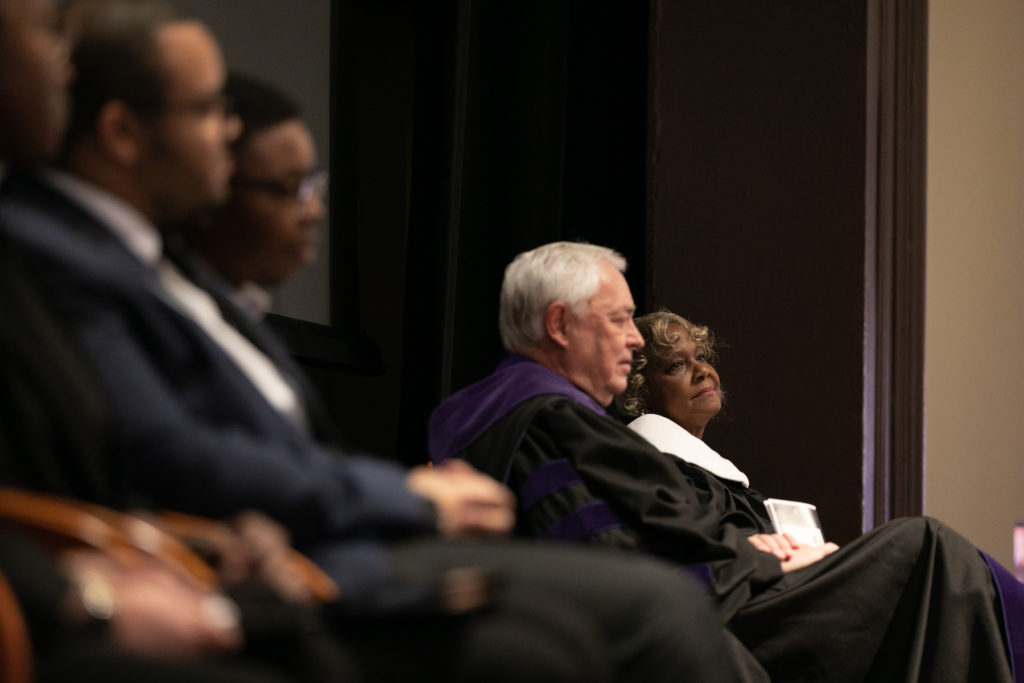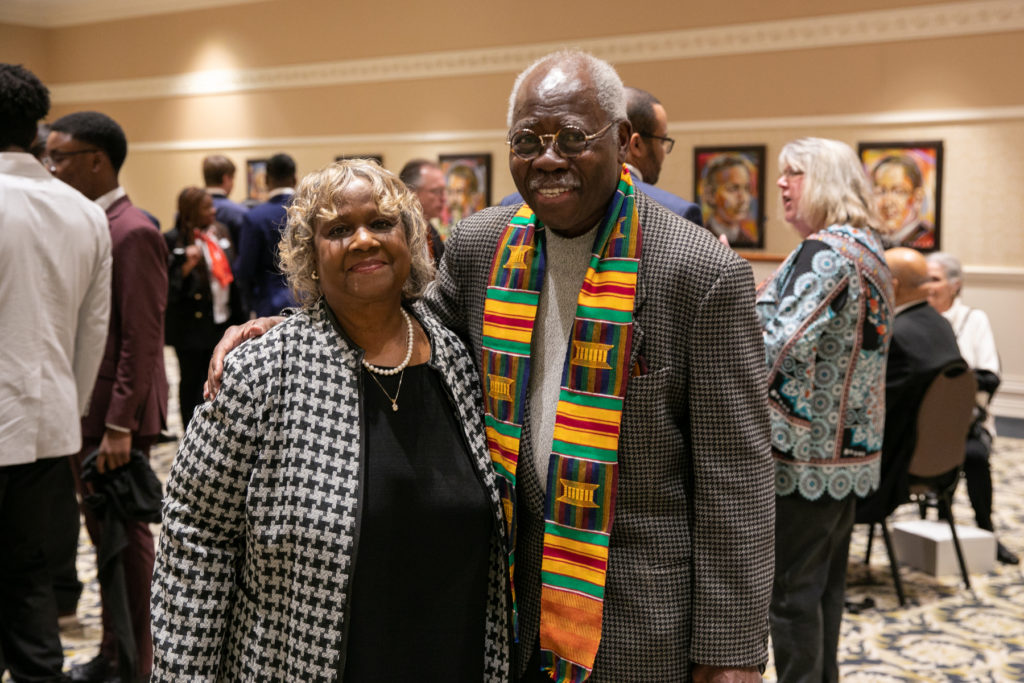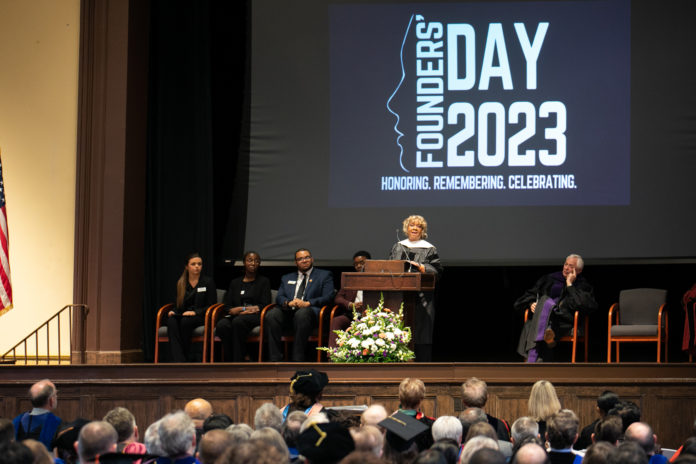During her Founders’ Day address, alumna Pearlie Toliver described how her time at Mercer University as one of the first Black female students helped her persevere through adversity after she left.
Toliver, who attended the College of Liberal Arts and Sciences from 1965-1968, spoke to faculty, staff and students gathered in Willingham Auditorium for the annual event Feb. 1. This year marks the 60th anniversary of Mercer’s integration. The University was among the first private college in Georgia to voluntarily desegregate.
Toliver acknowledged her peers who were among the first Black students admitted to Mercer including Sam Oni, Cecil Dewberry, Betty Walker and Bennie Stephens. She also spoke of her older sister, Thelma Ross, who was affectionately known as T-Lady at Mercer. As a staff member, Ross was “one of the most recognizable figures of her time,” Toliver said, and always encouraged Toliver to one day attend Mercer.
In her address, Toliver explained the history of Edgar H. Wilson, a Mercer law professor who served as mayor from 1959 to 1963. During that time, Toliver said, Wilson was “very instrumental” and “very effective” in working with Macon’s Black community, collaborating with U.S. District Court Judge William Bootle. Bootle, a Double Bear who earned his undergraduate and law degrees from Mercer, and Wilson worked together to desegregate Bibb County schools in 1964.
“These were very difficult and turbulent times racially in Macon,” said Toliver, who was among the first students to integrate the all-white public schools. “We were told that we were three years behind the white students and that there was no way we would graduate on time.”
Toliver described the uncertainty and fear she and her classmates experienced while integrating Mercer.
“To say these were dangerous times is an understatement,” she said. “The integration of Mecer was not appreciated by all in the community, as you would expect.”
Toliver, who enrolled at Mercer in 1965, expressed how much difficulty she had trying to summarize her experience at the University.
“I have agonized for several days on how to share this experience in a positive way,” she said. “How do I share this college experience without sounding bitter? How can I share my personal pain and disappointment with strangers? I finally summed it up in the words of Charles Dickens: ‘It was the best of times; it was the worst of times.’”
She said Mercer was a tale of two distinct cultures: an African-American culture and a white culture. She described the culture shock she experienced and the mental pressure it created for her and her classmates.
“I remember walking through the line to shake (Mercer President Rufus Harris’) hand, and I remember repeating to myself over and over again: ‘I have a right to be here,’” she said.

Toliver recalled her fondest memories happened not in a classroom but in Willingham. She described a question that Dr. Robert Otto posed at every Wednesday convocation.
“He would say, ‘In order to be successful, you have to know who you are, where you are and where you are trying to go,’” Toliver said. “That was more challenging to me than any class I took. It frustrated me for years, but it has been the guiding light for me through life. I challenge you to know who you are, where you are and where you’re trying to go.”
Toliver’s words impacted and motivated plenty of students in the audience, including senior mechanical engineering major Lauren Talbo.
“I really appreciate her honesty,” Talbo said. “As one of the first Black students to enter Mercer ever, she really covered and highlighted the struggles. She went into depth about how much she worked as well as the cultural atmosphere that was going on at the time.”
As a result of Toliver’s address, Talbo said she feels the need to try harder in both her classes and being a part of Mercer’s ever-evolving culture.
“She set a really big standard for us, which is great, and that’s what you’re supposed to do,” Talbo said. “You’re supposed to inspire other students but do so by (paving) your own way.”
In 1993, Toliver was content as an assistant vice president managing a bank branch, one of only two Black corporate banking officers in Macon. She was told that her potential employers had looked across the country, and there was not another person with the credentials to establish a community redevelopment department for the bank.
“Of course, I knew I was not that great, but in all honesty, they were not gonna find someone for the price they were willing to pay,” Toliver said.
Toliver’s work growing the redevelopment initiative for the bank was successful in part because of her Mercer connections and the University’s commitment to revitalizing the Macon community. She, along with then-Mercer faculty member Dr. Peter Brown, grew partnerships with the Macon Housing Authority, the Federal Home Loan Bank of Atlanta, Historic Macon and the city itself. They created a group called Macon’s Core Revitalization, which helped neighborhoods become integrated racially and economically.
Her connections to Mercer and positive efforts in Macon propelled her to vice president in charge of community redevelopment at the bank.
Toliver thanked Mercer for allowing her to reflect on her experience.
“As I have been forced to look at my life over the last few days, I can honestly say in my case: Mission accomplished,” she said.











